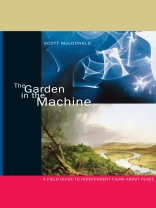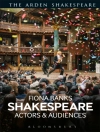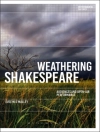The Garden in the Machine explores the evocations of place, and particularly American place, that have become so central to the representational and narrative strategies of alternative and mainstream film and video. Scott Mac Donald contextualizes his discussion with a wide-ranging and deeply informed analysis of the depiction of place in nineteenth- and twentieth-century literature, painting, and photography. Accessible and engaging, this book examines the manner in which these films represent nature and landscape in particular, and location in general. It offers us both new readings of the films under consideration and an expanded sense of modern film history.
Among the many antecedents to the films and videos discussed here are Thomas Cole’s landscape painting, Thoreau’s Walden, Olmsted and Vaux’s Central Park, and Eadweard Muybridge’s panoramic photographs of San Francisco. Mac Donald analyzes the work of many accomplished avant-garde filmmakers: Kenneth Anger, Bruce Baillie, James Benning, Stan Brakhage, Nathaniel Dorsky, Hollis Frampton, Ernie Gehr, Larry Gottheim, Robert Huot, Peter Hutton, Marjorie Keller, Rose Lowder, Marie Menken, J.J. Murphy, Andrew Noren, Pat O’Neill, Leighton Pierce, Carolee Schneemann, and Chick Strand. He also examines a variety of recent commercial feature films, as well as independent experiments in documentary and such contributions to independent video history as George Kuchar’s Weather Diaries and Ellen Spiro’s
Roam Sweet Home.
Mac Donald reveals the spiritual underpinnings of these works and shows how issues of race, ethnicity, gender, and class are conveyed as filmmakers attempt to discover forms of Edenic serenity within the Machine of modern society. Both personal and scholarly,
The Garden in the Machine will be an invaluable resource for those interested in investigating and experiencing a broader spectrum of cinema in their teaching, in their research, and in their lives.
Innehållsförteckning
Introduction
1. The Garden in the Machine
Larry Gottheim’s
Fog Line, Thomas Cole’s
The Oxbow, J.{ths}J. Murphy’s
Sky Blue Water Light Sign, Panoramas
2. Voyages of Life
Thomas Cole’s
The Voyage of Life, Larry Gottheim’s
Horizons
3. Avant-Gardens
Kenneth Anger’s
Eaux d’artifice, Marie Menken’s
Glimpse of the Garden, Carolee Schneemann’s
Fuses, Stan Brakhage’s
The Garden of Earthly Delights, Marjorie Keller’s
The Answering Furrow, Anne Charlotte Robertson’s
Melon Patches, Or Reasons to Go on Living, Rose Lowder’s Ecological Cinema
4. Re-envisioning the American West
Babette Mangolte’s
The Sky on Location, James Benning’s
North on Evers, Oliver Stone’s
Natural Born Killers, Ellen Spiro’s
Roam Sweet Home
5. From the Sublime to the Vernacular
Jan De Bont’s
Twister and George Kuchar’s Weather Diaries
6. The City as Motion Picture
The New York City Symphony: Rudy Burckhardt’s New York Films, Weegee’s
Weegee’s New York, Francis Thompson’s
N.Y., N.Y., Marie Menken’s
Go! Go! Go! Hilary Harris’s
Organism, Spike Lee’s
Do the Right Thing
Panorama, the San Francisco City Film: Frank Stauffacher’s
Sausalito and
Notes on the Port of St. Francis, Bruce Baillie’s
Castro Street, Michael Rudnick’s
Panorama, Ernie Gehr’s
Eureka and
Side/Walk/Shuttle
Coda–Deconstruction/Reconstruction: Pat O’Neill’s
Water and Power and Eugene Martin’s
Invisible Cities
7. The Country in the City
Central Park, Jonas Mekas’s
Walden, William Greaves’s
Symbiopsychotaxiplasm: Take One
8. Rural (and Urban) Hours
Hollis Frampton’s
Zorns Lemma, Robert Huot’s
One Year and
Rolls 1971, Nathaniel Dorsky’s
Hours for Jerome, Peter Hutton’s
Landscape (for Manon) and
New York Portrait, Part I
9. Expulsion from the Garden
Thomas Cole’s
The Garden of Eden and
Expulsion from the Garden, Julie Dash’s
Daughters of the Dust, Carl Franklin’s
One False Move, J.{ths}J. Murphy’s
Print Generation and
Horicon
10. Satan’s National Park
Bruce Conner’s
Crossroads, Werner Herzog’s
Lessons of Darkness, Claude Lanzmann’s
Shoah, James Benning’s
Deseret and
Four Corners
11. Benedictions/New Frontiers
Chick Strand’s
Kristallnacht, Stan Brakhage’s
Commingled Containers, Andrew Noren’s
Imaginary Light, Leighton Pierce’s
50 Feet of String, David Gatten’s
What the Water Said, nos. 1-3
Appendix: Distribution Sources for Films and Videos
Notes
Index
Om författaren
Scott Mac Donald teaches at Bard College. He is currently at work on volume 4 of A Critical Cinema: Interviews with Independent Filmmakers (volumes 1, 2, and 3 available from California). He is the author of Avant-Garde Film/Motion Studies (1993) and editor of Screen Writings: Scripts and Texts by Independent Filmmakers (California, 1995).












